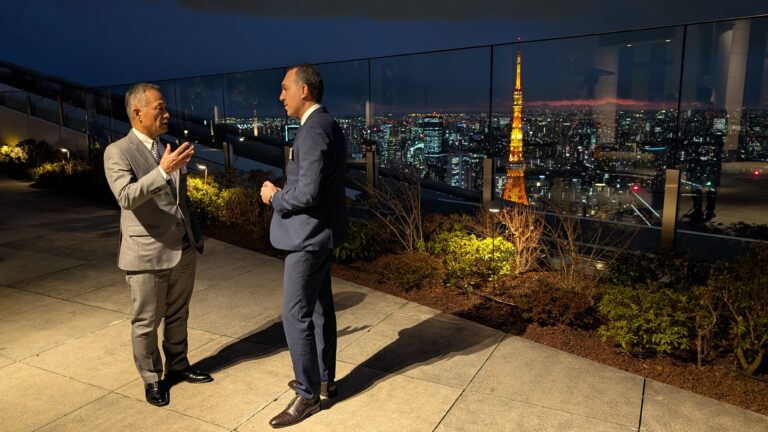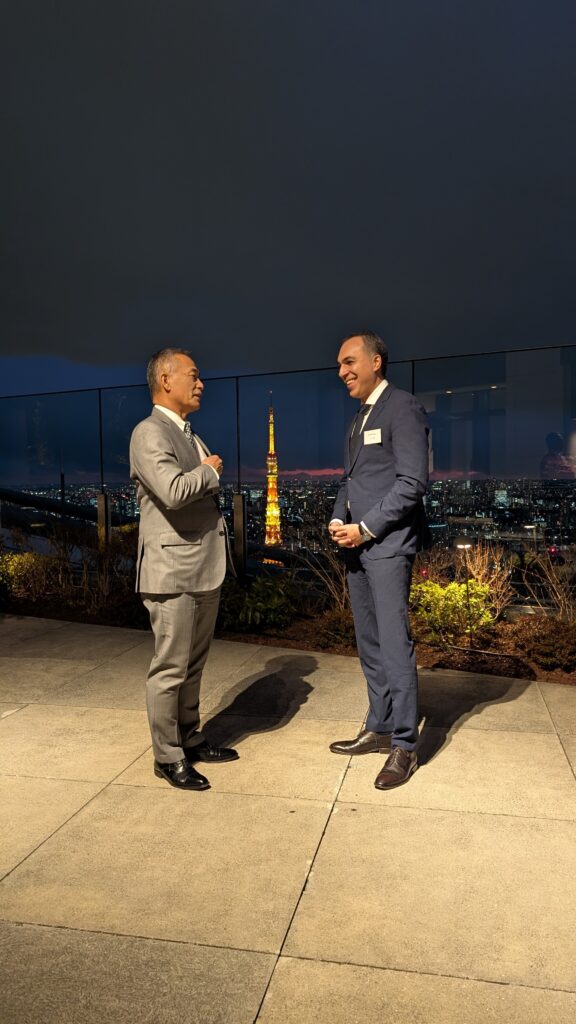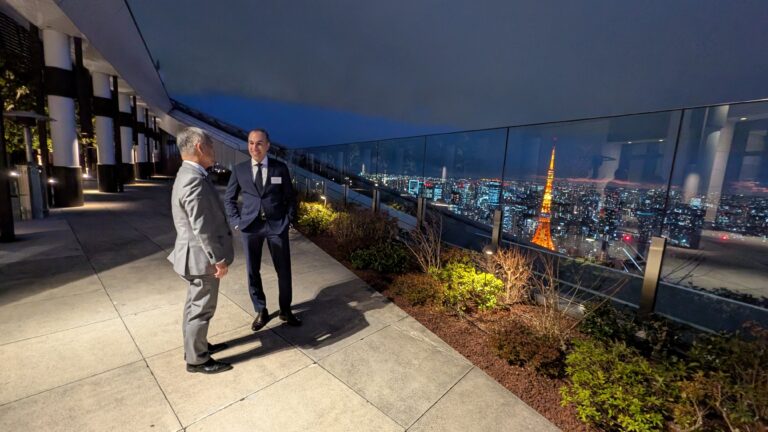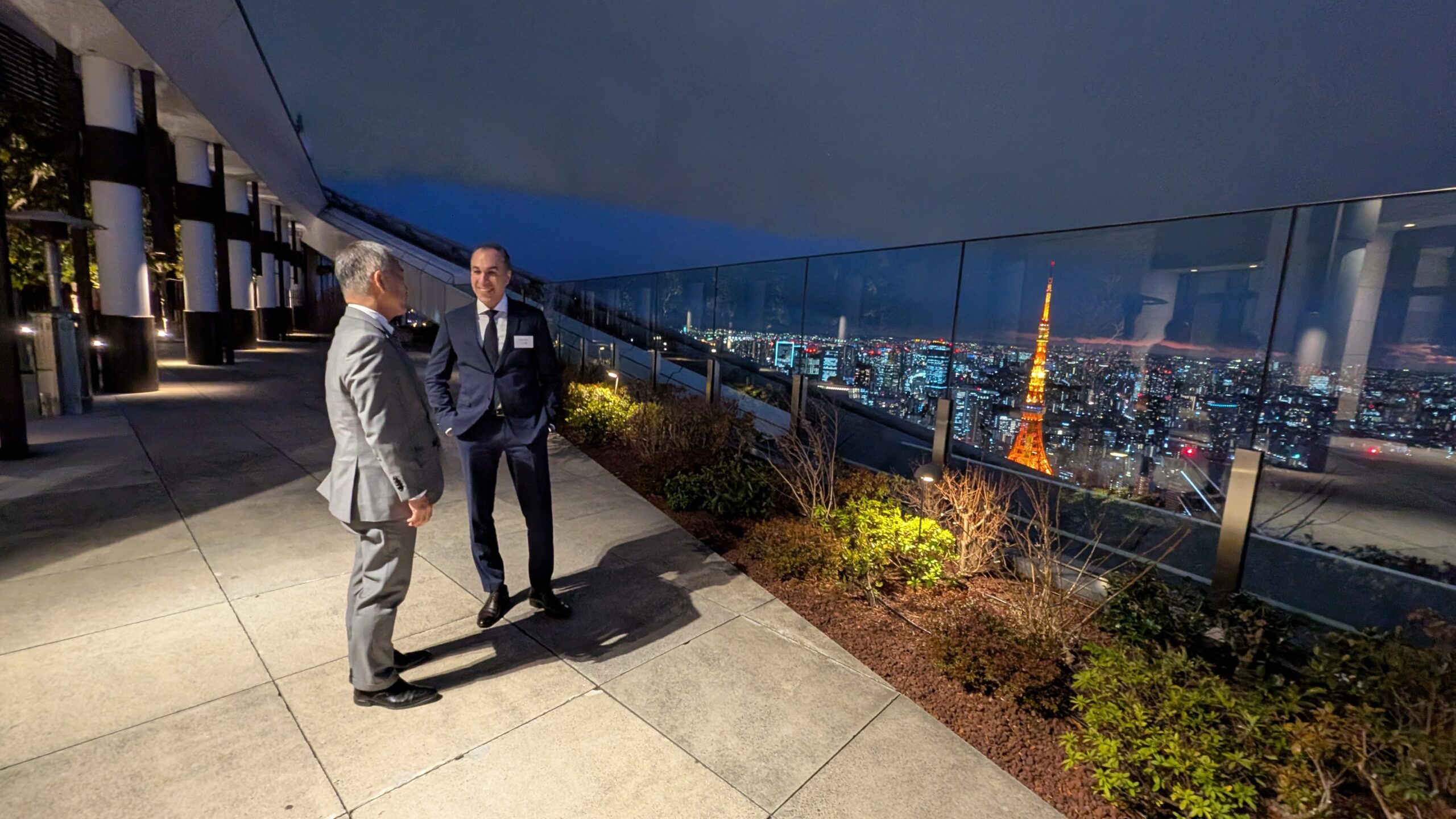Mitsunobu Koshiba is a true veteran in Japan’s tech and business world. With over 40 years in the industry, he’s seen it all—from the rise of semiconductors to the booming world of startups and sustainability. Starting his career at JSR Corporation back in 1981, he spent years in Silicon Valley, gaining a global perspective that shaped his approach to open innovation and venture investments. Now, he’s advising startups, working with the government, and keeping a keen eye on what’s next for Japan’s tech landscape.
In this conversation with Mehran Zaker, a Partner at Emerald, Koshiba-san shares his thoughts on why open innovation matters, what Japan’s startup ecosystem needs, and how technology and sustainability are shaping the future.

MEHRAN: The world’s moving fast, and businesses have to keep up. Traditional R&D alone doesn’t cut it anymore. What’s your take on open innovation for Japanese companies? And what’s holding them back from diving in fully?
KOSHIBA-SAN: In Japan, I think there’s a general agreement now that the old ways of doing things—keeping everything in-house—just don’t work anymore. Technology is evolving too fast. Companies need to stay flexible and have more options.
If I were leading a company today, I wouldn’t be making big, risky bets on just one technology. Instead, I’d be spreading my options—investing in different ventures and collaborating with startups. It’s just too expensive to go at it alone. But the key is not to just extend your internal R&D—it’s about really expanding your playbook.
MEHRAN: You were one of the first Japanese execs to really embrace working with international startups. That wasn’t always common. What made you realize that looking outside Japan was necessary?
KOSHIBA-SAN: When I took over as JSR’s president after the financial crisis, I spent a good chunk of time just trying to understand where the global economy was headed. Some trends, like climate change, were just too big for a mid-sized company like JSR to tackle alone. Instead of trying to reinvent the wheel, I figured—why not work with venture capital firms that already have the right connections and expertise?
Europe, for example, was way ahead in sustainability policies. We tapped into that by working with specialized funds there. It was a game-changer. We got the insights we needed without stretching our own resources too thin.

MEHRAN: That makes total sense. Speaking of sustainability—what role do you think technology plays in tackling it? And why do startups have such an advantage?
KOSHIBA-SAN: When I first started looking at sustainability, I thought it was all about technology. But the more I got involved, the more I saw how much politics and business are intertwined. Just look at COVID-19—science and policy had to work together. The same goes for sustainability.
Startups have an edge because they’re nimble. They’re not bogged down by legacy structures, so they can take bigger risks and move faster. That’s why open innovation is key—it lets big companies tap into that agility without having to take on all the risk themselves.
MEHRAN: So what’s your advice for Japanese CEOs who want to get serious about open innovation and investing in startups?
KOSHIBA-SAN: A lot of Japanese CEOs aren’t tech people—they climb the ranks as specialists in one field. That’s fine, but it means they might not have a broad understanding of where tech is headed. My advice? Surround yourself with people who do.
Set up an advisory board made up of experts from different fields. It doesn’t have to be formal—just a group of smart people who can keep you informed. You don’t need to be a tech guru, but you do need to understand the bigger picture.
MEHRAN: That’s a great point. Cultural change is tough, though. How can Japanese companies shift their mindset?
KOSHIBA-SAN: It all comes down to efficiency. If you’re spending all your resources doing everything in-house, you’re going to fall behind. Working with startups and VCs just makes more sense. Once corporate leaders see the numbers, they get it. It’s just about making that first leap.
MEHRAN: Japan has world-class researchers and engineers, but we don’t see a ton of Japanese startups making it big globally. Why do you think that is? And is it changing?
KOSHIBA-SAN: Japan’s startup ecosystem is still young compared to the U.S. and Europe. VCs here have traditionally been more focused on funding rather than really helping companies grow. But that’s starting to change. We’re seeing more strong startups coming out of Tokyo and Kyoto University, for example. The next step is making sure they have the right investors and mentors to scale internationally.
MEHRAN: The government has been putting a lot of money into supporting startups. Do you think that’s helping or hurting private investment?
KOSHIBA-SAN: Government funding is great, but it’s not a replacement for private capital. The biggest issue is that government fund managers don’t have to raise money themselves, so the risk mindset isn’t the same. That’s why we still need strong private investors who really know how to grow companies.

MEHRAN: Japan is super committed to sustainability. Where do you see Japan’s role in the global sustainability movement?
KOSHIBA-SAN: Japan has two big priorities: economic security and green transformation. The government is backing renewables, carbon pricing, and sustainability initiatives. One big advantage we have is our high economic density—it makes implementing new tech more cost-effective. We need to use that to our advantage.
MEHRAN: That’s a really interesting take. And what about economic security? How does that fit in?
KOSHIBA-SAN: These days, technology is a security issue. AI, semiconductors, quantum computing—it’s all tied to national security. That’s why Japan is making big investments in these areas. It’s not just about business—it’s about staying competitive on a global scale.
MEHRAN: You’ve been ahead of the curve on so many tech trends, especially quantum computing. Where do you see it going in the next few years?
KOSHIBA-SAN: Last year was a big moment for quantum computing. The tech is maturing faster than expected, and by the late 2020s, we could see real-world applications. Japan is in a good spot because we’ve already invested in hybrid computing models that integrate quantum systems.
MEHRAN: These are great insights. Is there anything else you would like to add?
KOSHIBA-SAN: It’s time for the next generation to step up.
MEHRAN: Well, we’re still counting on your wisdom for a while yet!
KOSHIBA-SAN: Haha, we’ll see! But seriously, Japan needs new leaders in this space. It’s up to all of us to make sure they get the support they need.
More on Emerald and Japan:
Emerald scores exclusive investment mandate with Japan’s Idemitsu
Emerald welcomes Japan electricity producer JERA to join Emerald’s energy fund
Breaking Barriers: a Secondee’s Transformative Journey in Corporate Venture Capital at Emerald
